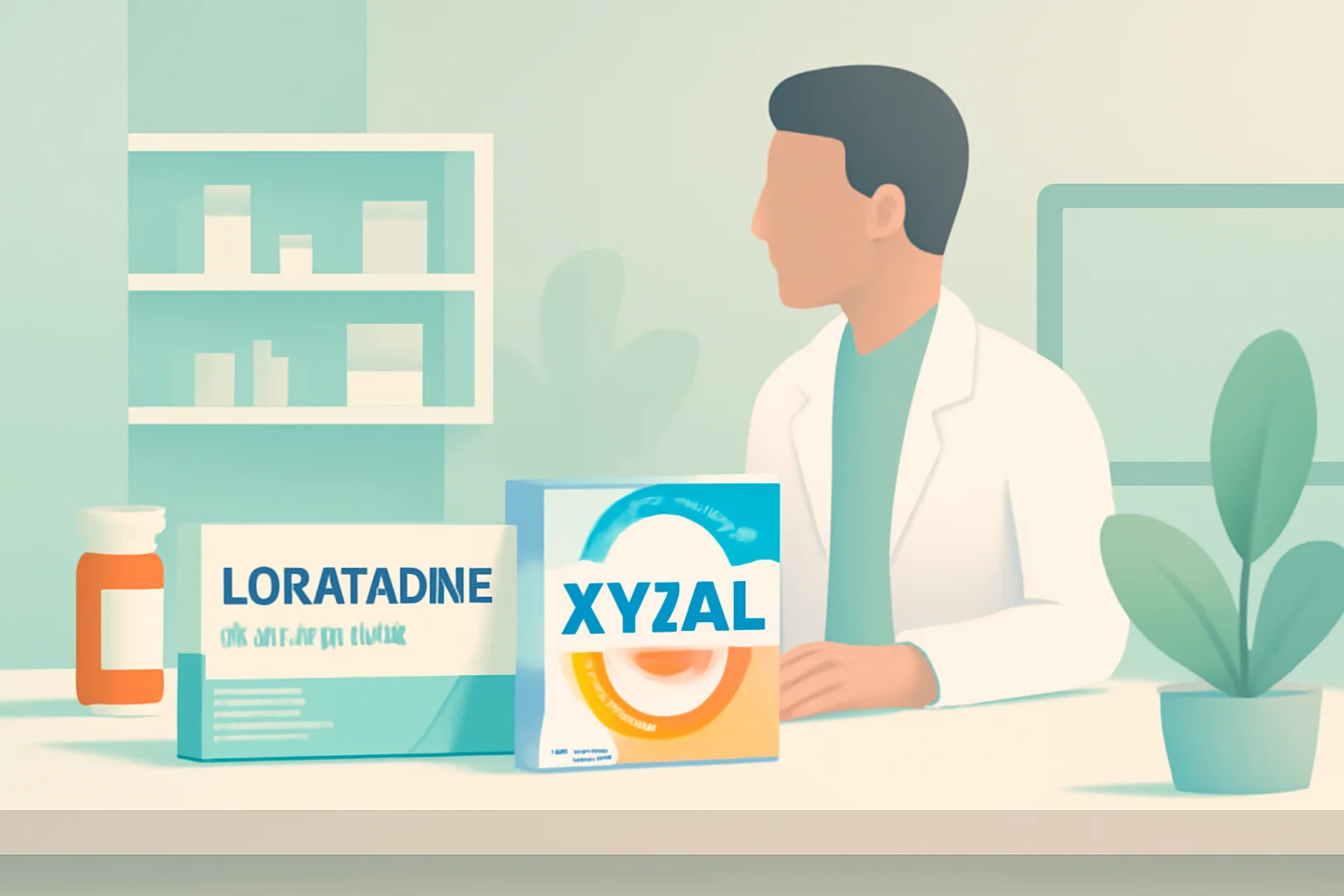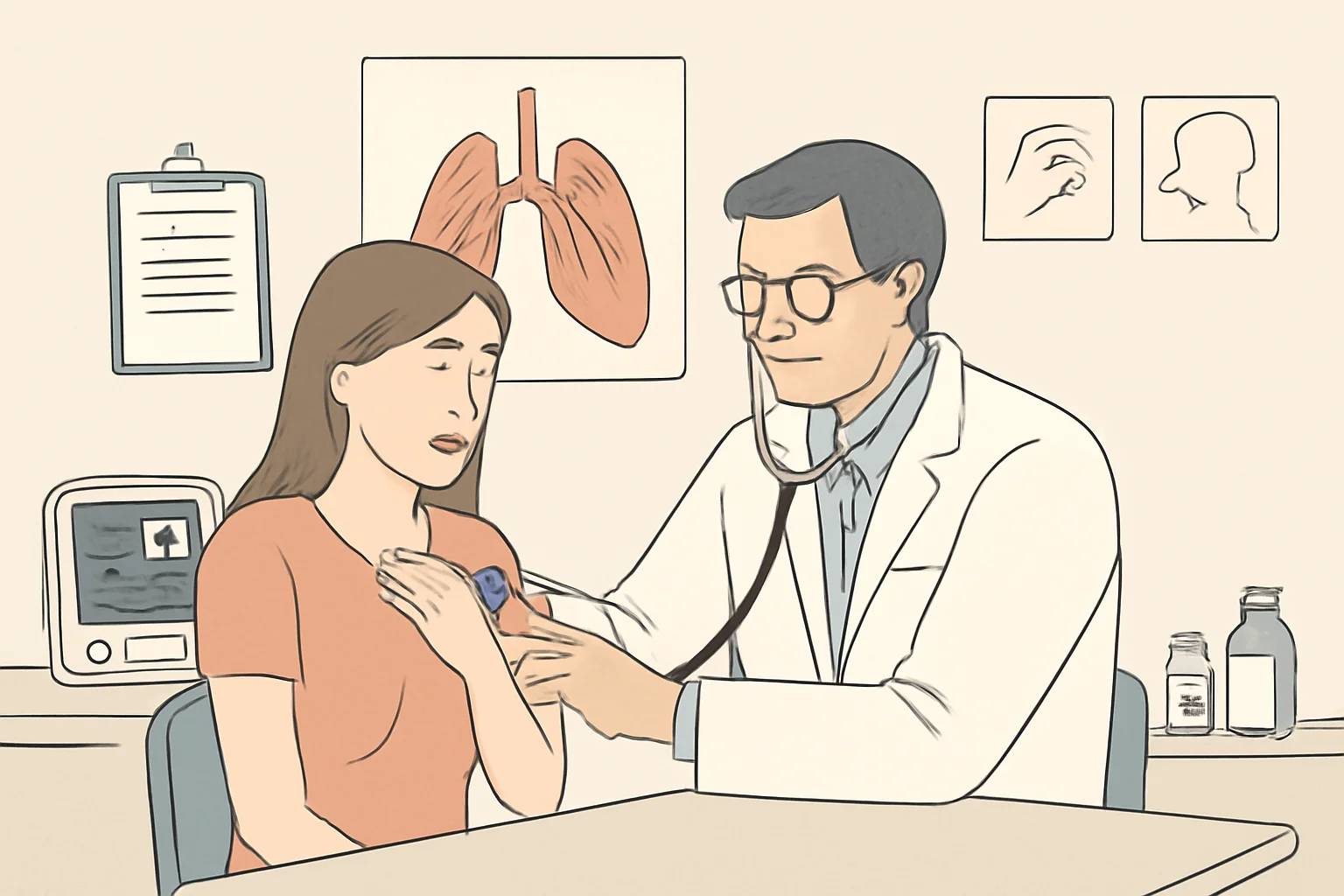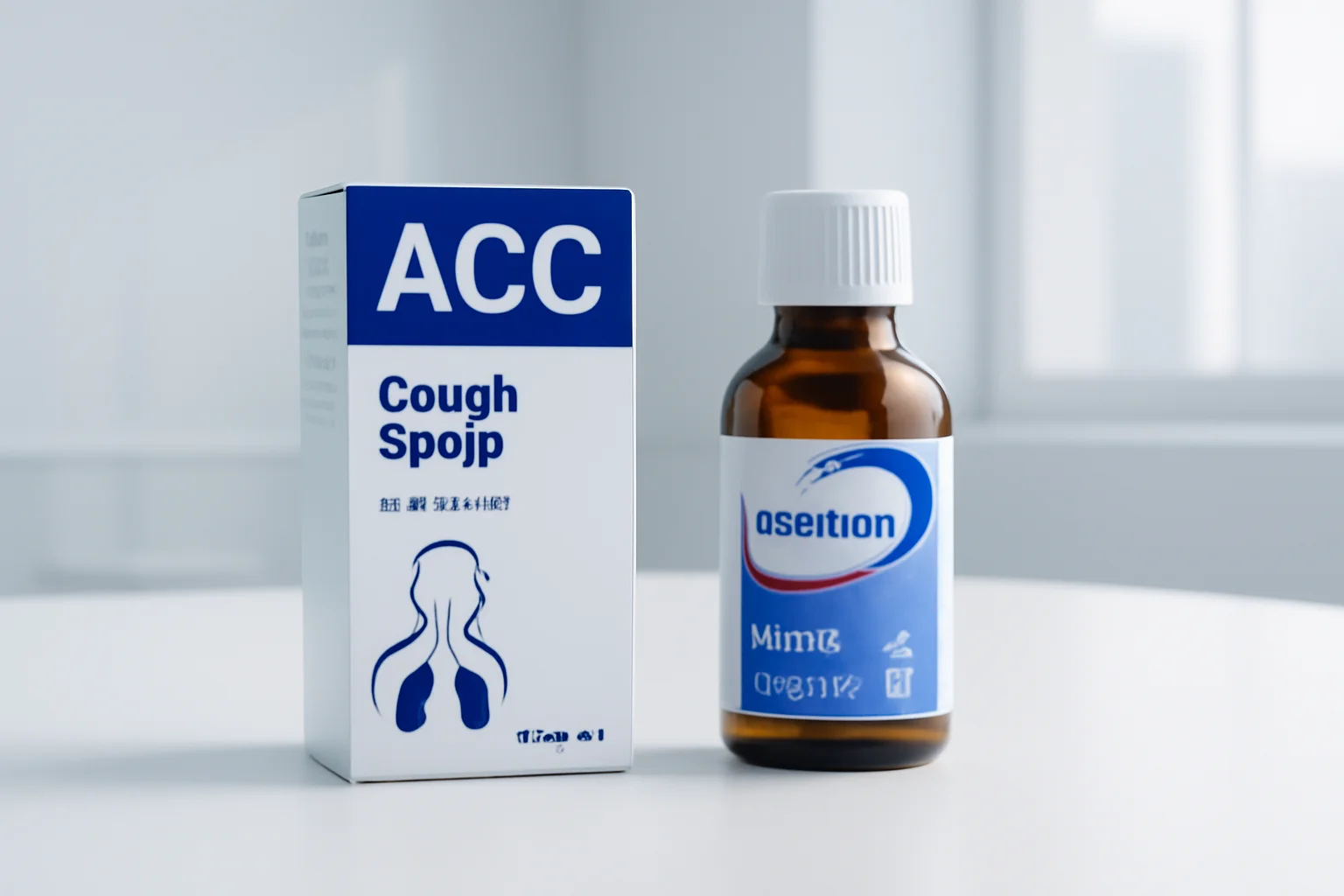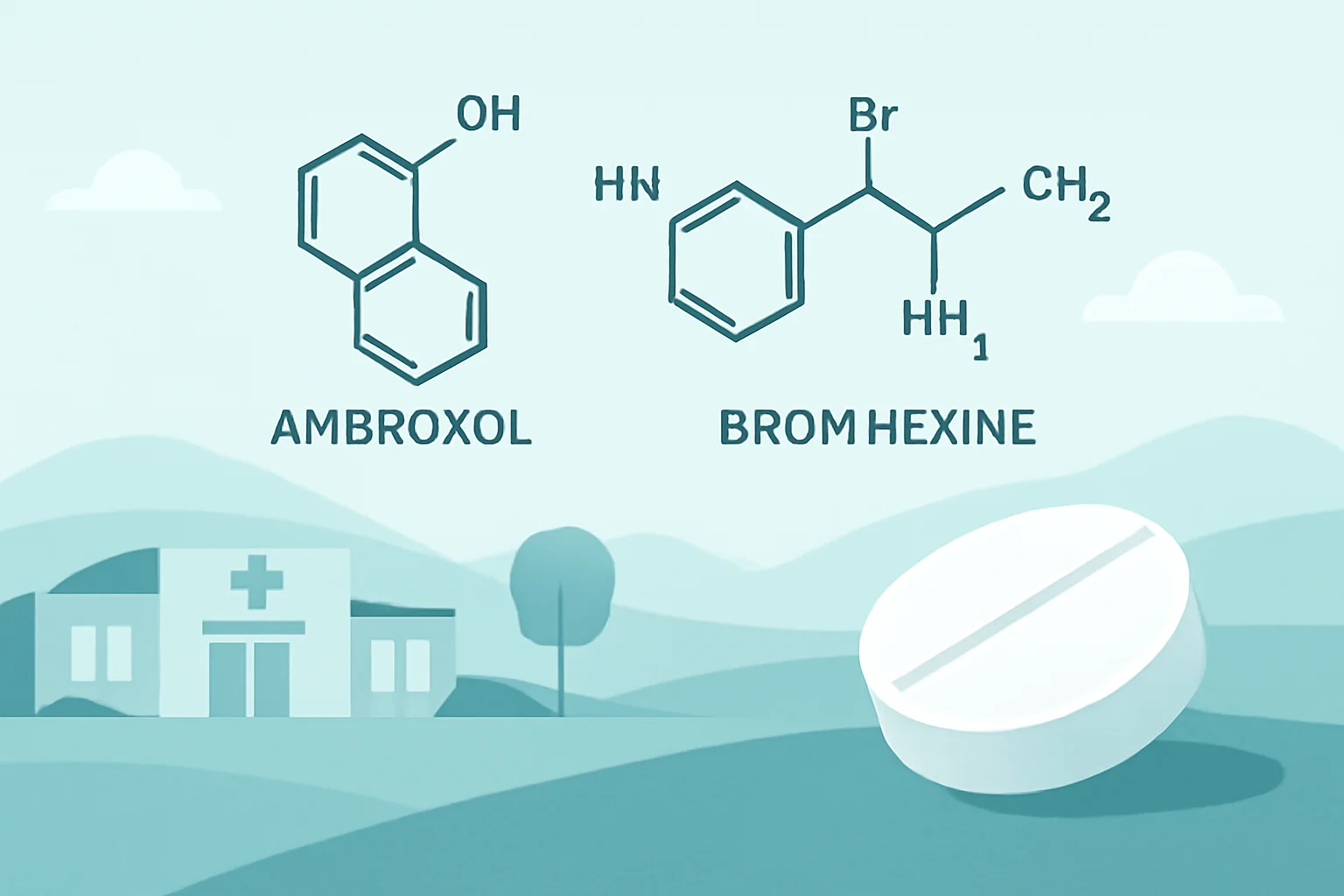Respiratory complaints
-
Ambroxol or Paxirasol: Which is the more effective cough suppressant?
Respiratory diseases are a serious problem worldwide, and people often seek effective solutions to alleviate their symptoms. Ambroxol and paxirasol are two medications used for treating respiratory conditions, but they have different mechanisms and active ingredients. Ambroxol is a mucolytic agent that helps to loosen mucus, while paxirasol is an antihistamine that can be particularly useful in cases of allergic reactions. Medicine is constantly evolving, and the effectiveness and applicability of different medications cover a wide spectrum. It is important for individuals to be aware of the benefits and drawbacks of various drugs to best support their health. This article provides a detailed overview of the characteristics, applications, and essential…
-
Loratadine or Xyzal: Which is the Ideal Antihistamine?
The loratadine and Xyzal (levocetirizine) are two popular antihistamines that are widely used for the treatment of allergic symptoms. Allergic reactions, such as hay fever, dust mites, or pet dander allergies, can significantly impact many people’s lives, and finding the right medication is crucial for alleviating symptoms. The mechanism of action of antihistamines lies in their ability to block the effects of histamine, a compound released during the body’s allergic reactions. Loratadine: Mechanism and Benefits Loratadine is a second-generation antihistamine that is most commonly used to treat allergic rhinitis and chronic urticaria. The mechanism of action of loratadine is based on blocking histamine receptors, thereby reducing the occurrence of runny…
-
Acc and bromhexine: Effectiveness and areas of application
The health of the respiratory system is crucial for our daily lives, as the air we breathe fundamentally affects the functioning of our bodies. Respiratory issues, such as coughing, mucus accumulation, and breathing difficulties, can complicate the lives of many people. Coughing is often a protective response of the airways that helps to remove irritants and mucus. However, if coughing persists or the amount of mucus increases, it is advisable to seek medical assistance. There are several medications available for the treatment of respiratory diseases, including ACC and bromhexine. These medications are used to clear the airways and relieve coughing, but they work through different mechanisms. The choice of the…
-
The effects of ambroxol and expectorants and the advantages of their use
A respiratory illnesses, such as colds, influenza, or chronic bronchitis, are often accompanied by coughing and airway congestion. These symptoms are not only uncomfortable but also make daily activities difficult. Coughing is the body’s natural defense mechanism that helps clear the airways; however, in some cases, medication may be necessary. Expectorants and ambroxol are among the most commonly used agents aimed at loosening mucus and keeping the airways clear. Ambroxol is a popular choice due to its effectiveness in reducing mucus viscosity, thereby facilitating its expulsion. Additionally, expectorants contain a wide range of active ingredients that also serve to suppress coughing. Choosing the right medication can often be a challenging…
-
Causes of Choking and Coughing: How Can We Prevent Them?
The symptoms of choking and coughing are often confused, despite the different causes and mechanisms behind them. These respiratory issues are not only uncomfortable but can also pose serious health risks, making it important to understand the processes involved. The body initiates various reactions to protect the airways when foreign substances or irritants enter them. Coughing is a reflex that helps remove obstructive materials from the airways, while choking refers to the complete or partial obstruction of breathing, which can lead to life-threatening situations. Coughing and choking can often be consequences of different diseases or conditions, such as asthma, allergies, respiratory infections, or the inhalation of foreign objects. To ensure…
-
Acc or Mucosolvan: Which is the More Effective Cough Suppressant?
Respiratory diseases, such as colds or bronchitis, often affect us, especially during the cold months. These problems are usually accompanied by coughing and mucus production, making everyday life difficult. Coughing, as a reflex, helps to clear the airways, but when the mucus becomes too thick, breathing becomes more difficult, and coughing can also become painful. At this point, it is important to apply appropriate treatment methods that can help clear the airways and relieve coughing. The Mechanism of Action and Use of ACC ACC, also known as acetylcysteine, is a mucolytic agent that helps to thin mucus accumulated in the airways. This active ingredient reduces the viscosity of mucus, facilitating…
-
Ambroxol or bromhexine: Which is the more effective cough suppressant?
A wide range of medications is available for the treatment of respiratory diseases, among which expectorants play a prominent role. These preparations help clear the airways by removing mucus, thereby facilitating breathing and reducing cough symptoms. Two popular expectorant active ingredients, ambroxol and bromhexine, may be familiar to many, but the question often arises as to which is more effective, or whether there is a difference between the two. People often seek solutions for respiratory complaints but may not always know what type of medication to choose. There are several similarities and differences between the two active ingredients that can influence the choice. Furthermore, the active ingredients are available in…
-
Xyzal and Cetirizine: Which is the Better Allergy Medication?
Due to modern lifestyles and environmental factors, more and more people are struggling with allergic symptoms, whether from pollen, house dust, or pet dander. To manage allergic reactions, various medications are available, among which cetirizine and xyzal (levocetirizine) are the most common. These antihistamines can effectively reduce allergic symptoms such as sneezing, runny nose, and itching. Cetirizine: Effects, Uses, and Side Effects Cetirizine is a second-generation antihistamine primarily used to treat allergic rhinitis and urticaria. Its mechanism of action lies in blocking histamine H1 receptors, helping to reduce symptoms caused by allergic reactions. When exposed to allergens, the body releases histamine, which is responsible for inflammatory responses; cetirizine inhibits this…
-
Cetirizine and Zyrtec: An Overview of Effectiveness and Side Effects
The cetirizine and Zyrtec are two popular antihistamines that are widely used for the treatment of allergic reactions. These medications are particularly effective in alleviating hay fever, skin rashes, and other allergic symptoms. Allergic reactions can include itching, sneezing, runny nose, and itchy eyes, all of which can disrupt our daily lives. Antihistamines, such as cetirizine, block the effects of histamine in the body, thereby reducing the aforementioned symptoms. Cetirizine: A thorough understanding of the active ingredient Cetirizine is an antihistamine classified as a second-generation antihistamine. This means that cetirizine has fewer side effects compared to first-generation antihistamines like diphenhydramine. Cetirizine reduces allergic reactions by blocking histamine H1 receptors, which…
-
Fluimucil or Mucosolvan: Which is the more effective answer to cough?
Respiratory diseases, such as colds or bronchitis, often cause uncomfortable symptoms like coughing and difficulty breathing. These issues can be particularly bothersome, as they not only affect our daily lives but also make resting and working more challenging. The mucus accumulated in the airways makes breathing difficult, and coughing reflexively tries to remove this excess secretion. Available Medications Various medications are available to help with mucus dissolution and cough relief. Two commonly used products are Fluimucil and Mucosolvan, both of which offer effective solutions for treating respiratory problems. However, it is important to choose the right one, as each medication has its own advantages and disadvantages. To make the appropriate…









